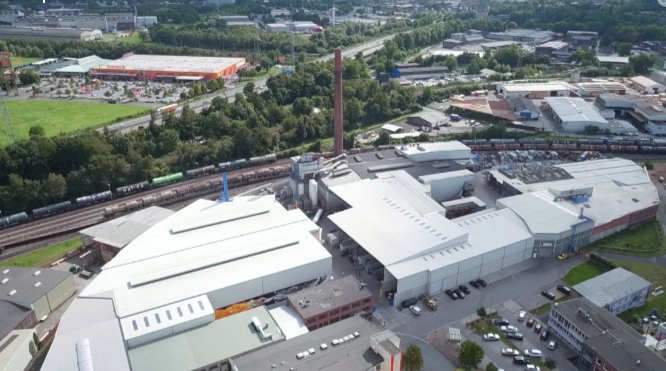Aluminium manufacturer Trimet: Expansion of site's production capacity
by David Fleschen

Trimet has almost completed the expansion of its recycling plant in Gelsenkirchen. The aluminium manufacturer has expanded the site's production capacity and at the same time significantly reducedCO2 emissions by converting the energy supply. As a result, the aluminium alloys made from recycled scrap have a significantly improved eco-balance, which benefits the end products of the processing industry.
"In order to achieve climate targets, the industry needs sustainably produced materials," says Dr Andreas Lützerath, Member of the Executive Board of Trimet Aluminium SE. "The demand for recycled aluminium will continue to rise. We are aligning ourselves with this demand - with an expanded range of recycled materials and optimised ecological quality."
With the expansion of the site, Trimet is increasing the production capacity of the recycling plant by around 20 per cent. In addition to an additional casting roundel for casting aluminium sows, an additional tilting drum furnace was installed for this purpose, which ensures a higher melting capacity and better energy efficiency. Gelsenkirchen can now produce 80,000 tonnes of recycled aluminium per year. In order to be able to process the additional quantities, an enlarged converter went into operation last year.
In order to be able to process the additional quantities, an enlarged converter went into operation last year. The family-run company has invested tens of millions in the expansion. A large part of the extensive work involved converting the energy supply to make the remelting of the light metal even more climate-friendly. "We want to become the greenest aluminium recycling plant in Europe," explains Trimet CEO Lützerath.
The recycling plant is now self-sufficient in terms of power supply. Trimet relies on renewable energy sources. On the roofs of the production halls and warehouses, solar cells covering an area of 3,000 square metres supply green electricity, which already covers a large part of the plant's own requirements. The rest is generated from waste heat from the melting furnaces. A heat exchanger and two power plants convert the waste heat into electrical energy using ORC technology. Among other things, the self-generated electricity powers the processing plants and supplies the fuel for the company's internal vehicle fleet. All of the recycling plant's industrial trucks have been converted to electric drives. In addition, Trimet will feed around 20 gigawatt hours of waste heat from the furnaces into the public district heating network in Gelsenkirchen.
Converting the waste heat into electricity reduces the indirectCO2 emissions caused by production, known as Scope 2 emissions, by up to 100 per cent. Direct emissions will also fall significantly. From autumn 2024, the recycling plant at the Gelsenkirchen city port will operate the smelting furnaces with hydrogen-rich energy gas, which Trimet will obtain from Uniper Energy Sales via existing gas pipelines from the ArcelorMittal coking plant in nearby Bottrop. The coke oven gas contains more than 60 per cent hydrogen and, as a fuel, releases significantly less CO2 emissions than fossil natural gas. The Gelsenkirchen site will save around 4,000 tonnes ofCO2 per year as a result. That is around a quarter of the carbon dioxide emissions currently produced. There is also the possibility of converting the recycling plant's operations completely to hydrogen when it is economically available.
Source and Photo: Trimet

